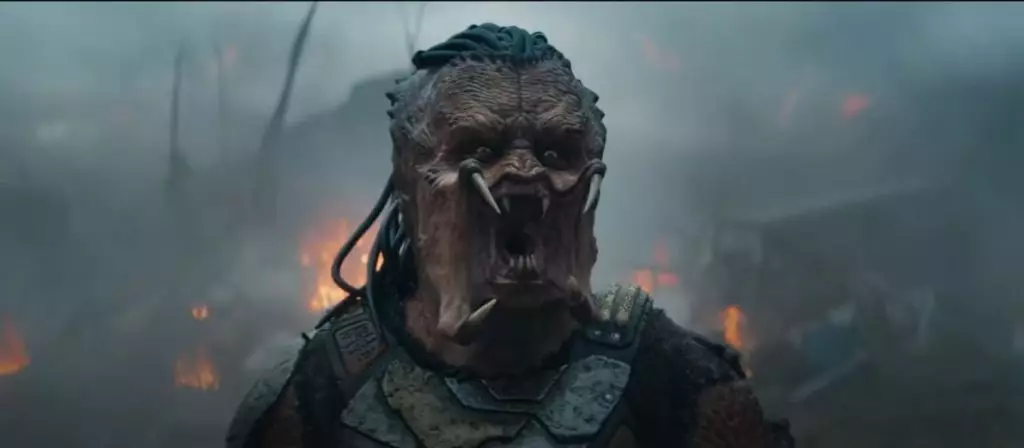The latest installment, *Predator: Badlands*, signifies not just a new chapter but a bold departure from the traditional values that once defined the iconic Predator franchise. For decades, fans have associated Predator films with gritty survival, human resilience, and a balanced blend of science fiction and primal combat. By shifting focus to a Predator-focused story void of human protagonists, the franchise risks alienating its core audience that cherishes human ingenuity and vulnerability. While innovation is necessary, the franchise’s attempt to reinvent itself with a non-human protagonist and an emphasis on emotion over action signals a troubling deviation from what made the series compelling in the first place. It appears the creators are placing style and concept experiments over the consistency and thematic depth that fans have come to expect.
Undermining Franchise Identity with Overambitious Diversification
Director Dan Trachtenberg’s *Badlands* hears potential but seems to stretch the series’ identity thin. The decision to portray a young, outcast Predator as the hero, devoid of human interaction for most of the film, erodes the franchise’s fundamental allure—its reflection of human daring and survival against a near-indestructible predator. Instead of exploring the predator as a metaphor for human fears and ambitions, the film seems to elevate the creature to an almost sympathetic figure, risking diluting the franchise’s core tension. It’s a classic case of misguided diversification—changing the recipe in hopes of achieving a new flavor, but ending up with a dish that feels disconnected from the original. It’s like trying to rebrand a beloved icon only to undermine its very essence.
Questionable Narrative Choices and Their Impact on Audience Engagement
The narrative choices—focusing on complex, emotional relationships between non-human characters and eschewing traditional hero-centered plots—might be artistically interesting but threaten to diminish the visceral thrill that initially defined the series. The film introduces the idea of an unlikely friendship between a Predator and a synthetic android, highlighting emotional constructs more associated with sci-fi dramas or past Disney endeavors than a gritty action franchise. While some might argue this adds depth, it severely hampers the franchise’s appeal to its established fan base that relishes raw, primal combat and suspenseful survival scenarios. The decision to sideline human characters raises questions about the film’s accessibility and relatability, which are pivotal in connecting viewers to the story.
The Cultural and Commercial Risks of a Streaming-First Approach
Trachtenberg’s previous success with Hulu’s *Prey* showcased his ability to reinvigorate the franchise on a streaming platform. However, Disney’s decision to release *Badlands* exclusively in theaters signals a gamble—one that might not favor the franchise’s future. The streaming era has, in many ways, democratized content, but it also risks fragmenting audiences and undervaluing high-budget blockbusters that thrive on communal viewing experiences. By choosing theatrical release over streaming, Disney seems to be trying to restore prestige, but whether this reaps financial benefits or alienates younger viewers accustomed to streaming remains an open question. This approach underscores a broader industry dilemma: balancing artistic reinvention with franchise consistency that keeps longtime fans emotionally invested.
The Fractured Legacy and Its Implications
Ultimately, *Predator: Badlands* symbolizes a fractured legacy—a franchise caught between honoring its roots and chasing innovative storytelling. While pushing boundaries is commendable, strategies that deviate sharply from what made a franchise beloved can be damaging. As a lover of science fiction and action narratives, I believe a more thoughtful evolution respecting the balance of human resilience and primal threat would serve the franchise far better than a haphazard quest to redefine itself. If the series continues down this path, it risks becoming less of a cultural phenomenon and more of a cautionary tale of franchise mismanagement—a reminder that core themes should never be sacrificed at the altar of innovation.
By critically examining *Predator: Badlands*, it’s clear that the franchise’s future hinges on whether it can reconcile creative experimentation with its iconic DNA, or risk drifting aimlessly in a sea of gimmicks and superficial reinventions.


Leave a Reply